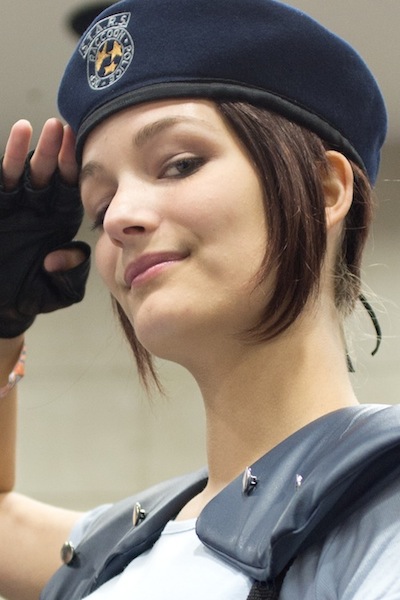The roles we play

Today, Comic-Con 2011 wraps up here in San Diego. It's family day, where the halls fill up with locals -- following three days of celebrity panels, costume contests and other festivities. The event is all about people, whether someone comes to see a celeb, meet the authors of favorite books, games or movies or to do role play.
Many attendees have come here as someone else. For a day, or even a few, they take on another persona. They become someone else -- perhaps whom they would rather be, but most certainly not who they are. They can be heroes and even stars, for most anyone well-costumed will be repeatedly stopped for photos. Comic-Con lets them be not just someone else but someone special.
Hollywood is in Comic-Con takeover mode, as it has been for several years. But the real stars aren't the big-screen actors but the small bit players roaming the halls. What is the real allure of Hollywood stars? The roles they play, and how many people here want to be like them -- the stars and their roles.
What are comics but role playing stories? Superman assumes the role of Clark Kent. Bruce Wayne plays the role of Batman. Tony Stark plays the role of Iron Man. One man or one woman becomes someone different than the daily lives they live. These people transform into superheroes when putting on their costumes. I see this aspiration in the faces of Comic-Con's costumed attendees. They, too, desire to be heroes when wearing the costumes.
We all play roles, and they constantly change. The role of employee or entrepreneur differs from boss and manager or from parent, spouse or child. The roles we play are everyday. It's why companies like Microsoft create products that help people manage converging lifestyles -- such as work, home and play.
Peoples' personas change, even if subtly, as they play their everyday roles; they change depending upon the interaction or scenario. But here, at Comic-Con, the changes are dramatic, and I wonder why they can't be more permanent.
Mores are one explanation. Society defines roles, too. The young can have fun in certain ways, but adults are discouraged from engaging in similar activities. Or visa versa. But here, anyone of any age can dress up -- and play! That's the other role anyone, or everyone, at Comic-Con assumes: The child having fun, being someone else. Children learn by playing roles, some of which they will adopt as adults. Childs play is role playing for adulthood. But adults are discouraged from donning costumes and role playing, too. But not at Comic-Con, where anyone of any age can dress up and be someone else.
Everyone here has a story to tell, and it is for those stories that I come to Comic-Con. If only the cosplayers could wear the heroic personas every day, perhaps their lives and those they touch could be so much better. There are villains, too, but heroes in disguise because they also represent someone the role player aspires to be -- the keywords being "aspire" and "aspiration."
Something else: there's a purity about the fun. No alcohol. No drugs. Looked at that way, participants aren't just playing a role, they're being themselves.
At Comic-Con, I see some of the best qualities of humanity, as people take off their angers, frustrations and hatreds and put on costumes of fun and play. Happiness shouldn't be a costume you wear for a day or two, nor should be aspiration.
Behind it all is storytelling. The best comics, superhero stories or even high-tech products share something in common: They inspire people to aspire for something better. It's all about the story they tell about the roles we play everyday.